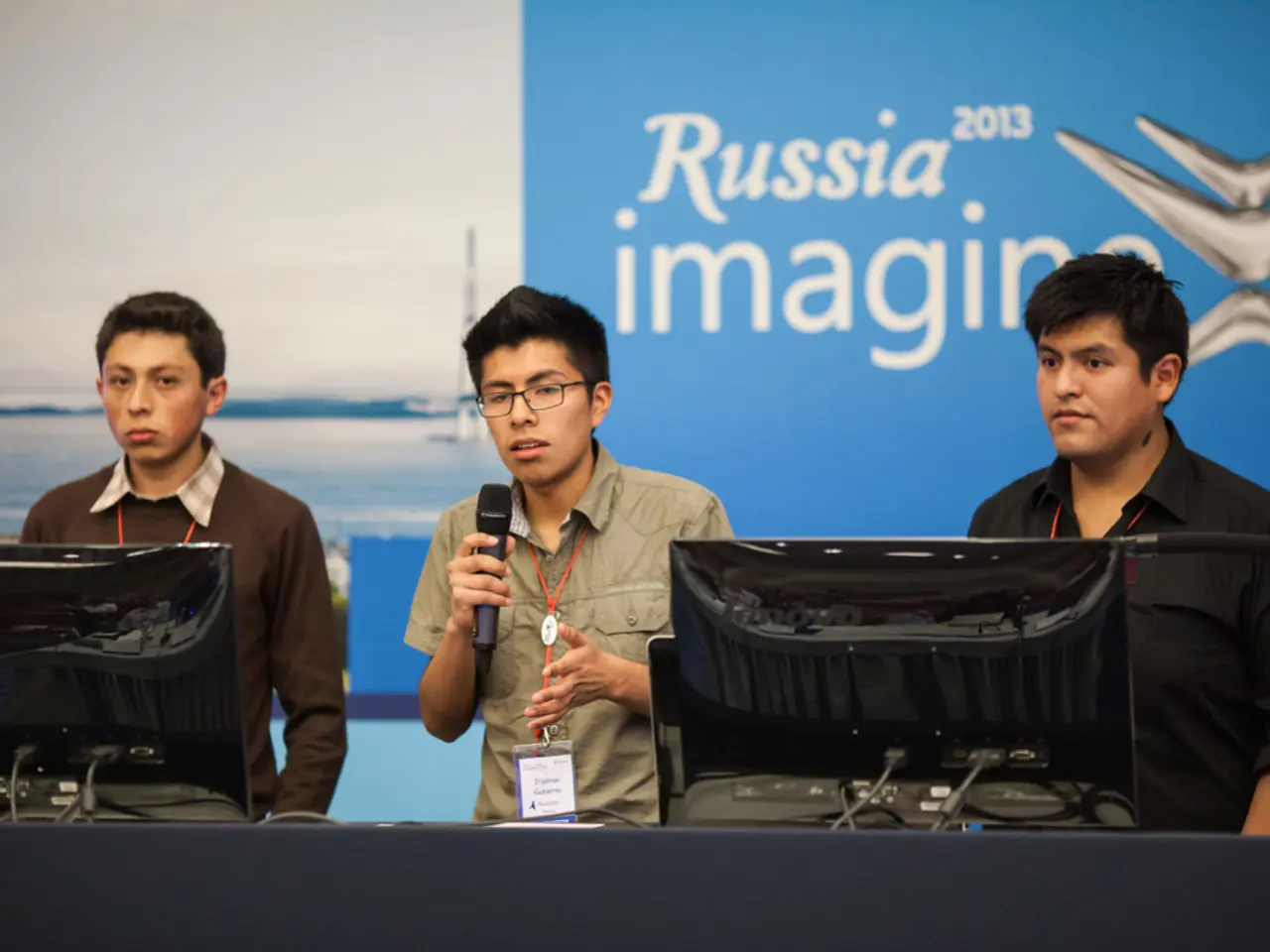Diplomatic Impotence: Trump's Negotiating Tactics Clash with Putin's Unyielding Realism
In a series of diplomatic talks, US President Donald Trump's call for an immediate ceasefire in the ongoing war in Ukraine has been replaced with a broader, long-term discussion on ending the conflict on Russian terms. This shift came following a recent summit between Trump and Russian President Vladimir Putin in Alaska.
Putin, however, refused an immediate ceasefire and demanded that Ukraine cede the entirety of its eastern Donetsk region. This hardline stance was met with concern from various quarters, including retired US Army Colonel Richard Williams, who expressed his worry over Trump's "shallow facade" as an honest broker.
Matt Duss, executive vice president at the Center for International Policy, suggests that Putin has successfully exploited a key vulnerability in Trump's approach: his reliance on intimidation and his personal need to be seen as a winner. Duss further contends that Trump's skills as a negotiator may be misplaced in international security matters.
The diplomatic push comes amid a significant escalation in the war, with Russia launching a major aerial assault on Ukraine on Monday, using over 270 drones and 10 missiles. This attack on Ukraine's critical energy infrastructure is part of a campaign of "systematic terrorist attacks" and a direct violation of international humanitarian law, according to Ukraine's Energy Ministry.
The White House has left open the possibility of providing US air power, but the meaning of such a guarantee remains ambiguous. Ukraine, however, wants the guarantees to mean that the US and Europe would be willing to come to their defense, not just through arms, but through troops and other military means.
As the war in Ukraine becomes a proving ground for the dynamic between Trump and Putin, experts point out that Trump is diplomatically outmatched by Putin. They argue that Trump often approaches meetings with overconfidence and little preparation, while Putin is highly prepared and knows how to exploit Trump's weaknesses.
This dynamic was allegedly evident in a "hot mic" moment on Tuesday, where Trump was heard discussing a personal "quid pro quo" with Putin. Trump reportedly feels intimidated by Putin and believes that Putin knows how to handle him.
Putin insists on the legalization of the Annexation of Crimea and the Donbas, excluding NATO from any post-conflict security framework. This demand has raised concerns about the future of NATO's role in maintaining peace and stability in the region.
As the diplomatic push continues, Richard Williams warns of a deceitful intent and a lack of commitment to the principles of a reliable Western ally. He cautions that the path to a meaningful and credible security arrangement for Ukraine remains fraught with peril, and Europe and NATO must plan accordingly.
In a separate development, the Netherlands has deployed 2 of 3 Patriot batteries to Poland, a move that is not directly related to the diplomatic push or the war in Ukraine but is a standalone fact mentioned in the article.
This complex web of diplomatic maneuvers and military actions underscores the ongoing challenges in resolving the conflict in Ukraine and the delicate balance of power between the US and Russia.
Read also:
- United States tariffs pose a threat to India, necessitating the recruitment of adept negotiators or strategists, similar to those who had influenced Trump's decisions.
- Weekly happenings in the German Federal Parliament (Bundestag)
- Southwest region's most popular posts, accompanied by an inquiry:
- Discussion between Putin and Trump in Alaska could potentially overshadow Ukraine's concerns








